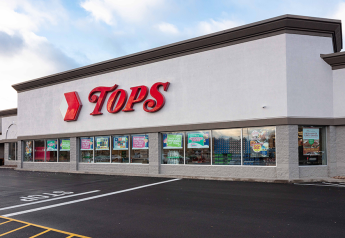Foodservice sector staggered by coronavirus restrictions
Packer Interview March 19 - Brent Erenwert
Suddenly, bars, casual eateries, and fine-dining restaurants have nearly vanished. Millions in produce sales have disappeared with them.
Take-out and drive-through business is the total focus for U.S. foodservice operations stung by mid-March coronavirus-related restrictions implemented by federal and state officials. On March 16, President Donald Trump issued guidelines that called for Americans to avoid social gatherings of more than 10 people and to limit discretionary travel.
Trump said the voluntary recommendations would apply for 15 days but said they could be extended. Many states have implemented their own mandates to eliminate dine-in service.
Initial economic forecasts from the National Restaurant Association reveal the industry will sustain at least a $225 billion loss and be forced to eliminate between 5 to 7 million jobs from April through June.
Reports showed an immediate decline in produce foodservice business in every region of the country.
“Members told us to expect a drop-off of 30-40% in business, and so far that has proven very accurate,” Tim York, president of foodservice procurement company Markon Cooperative, Salinas, Calif., said in a March 17 e-mail.
“Prior to the government recommendation for take-out/delivery only, off-premise dining was already seeing a surge in business,” he said. “We expect that full-service restaurants will rapidly adapt to off-premise dining — if they weren’t already doing take-out/Door Dash, etc.”
An International Foodservice Manufacturers Association study, in conjunction with Kinetic12 Consulting, was finished before a wave of new restrictions on March 16.
“Many consumers no longer have a choice and will likely be utilizing third-party delivery apps such as UberEats, Grubhub and Doordash,” according to an IFMA news release.
Survival is on the line for many operators,
“For independent restaurant owners, the concern about cash-flow, business survival and the impact on their employees is likely higher on their priority lists than restaurant sanitization procedures.”
The study predicts:
- Quick-service operations will maximize “non-social” transactions;
- Family casual operations will suffer greater sales losses but will try to maximize take-out, curbside pickup and delivery business with reduced staff;
- Fine-dining operators with little to no take-out and delivery will be hardest hit, with many closing during the restricted period; and
- Closed schools will shut down foodservice operations and healthcare foodservice operators will face unique issues as staff and visitors choose where it is safe to eat.
Produce shippers and distributors with a reliance on foodservice business, will be forced to consider a quick shift to serve retail customers.
“Shippers whose business model relies heavily on foodservice (may see) some of the most detrimental impacts because people aren’t wanting to go out in public and spend money,” said Roland Fumasi, vice president and senior analyst for Rabobank’s RaboResearch Food and Agribusiness division.
In mid-March, Brent Erenwert, CEO of Houston-based Brothers Produce, said retailers have been moving away from value-added produce to whole commodities to simplify sourcing and restocking. In a sense, the coronavirus outbreak seems to have reset industry demand to preferences of 30 years ago.
“The value-added (produce) is going to slow down because we don’t know how much volume is going to fall for these restaurants, and the supply chain is all about keeping things on the (retail) shelf right now,” he said, noting strong demand for items like apples, potatoes, oranges, and squash.
When restaurants will thrive again is uncertain, Erenwert said.
“You have to change and evolve, and try to find how you can get through this time,” he said. “I think we are going to have a much-changed landscape.”
Related articles
Coronavirus causing sustained Thanksgiving-like demand at retail
Trump waives hours of service rules for emergency transport of food
Wholesalers, others in supply chain changing business models







